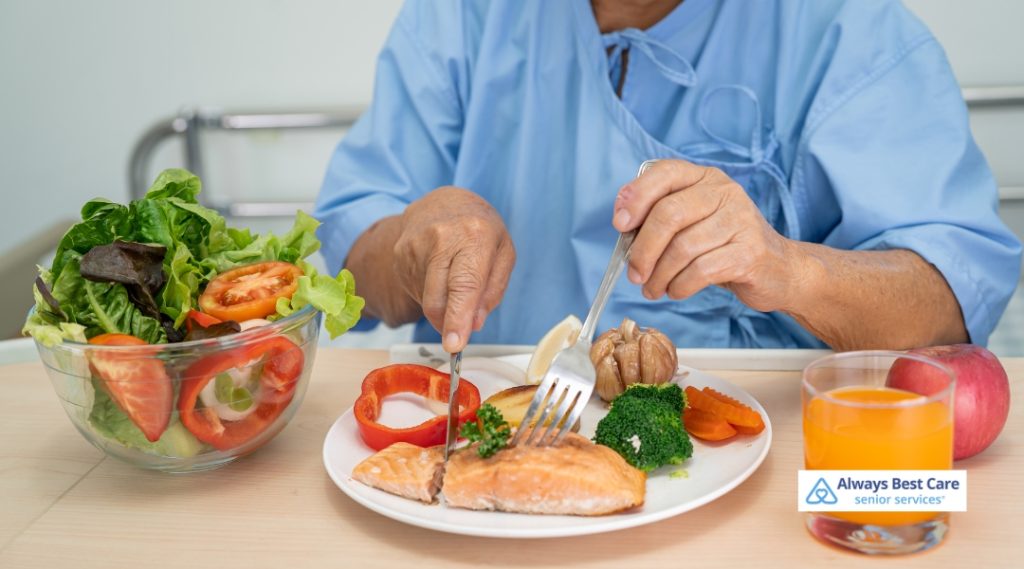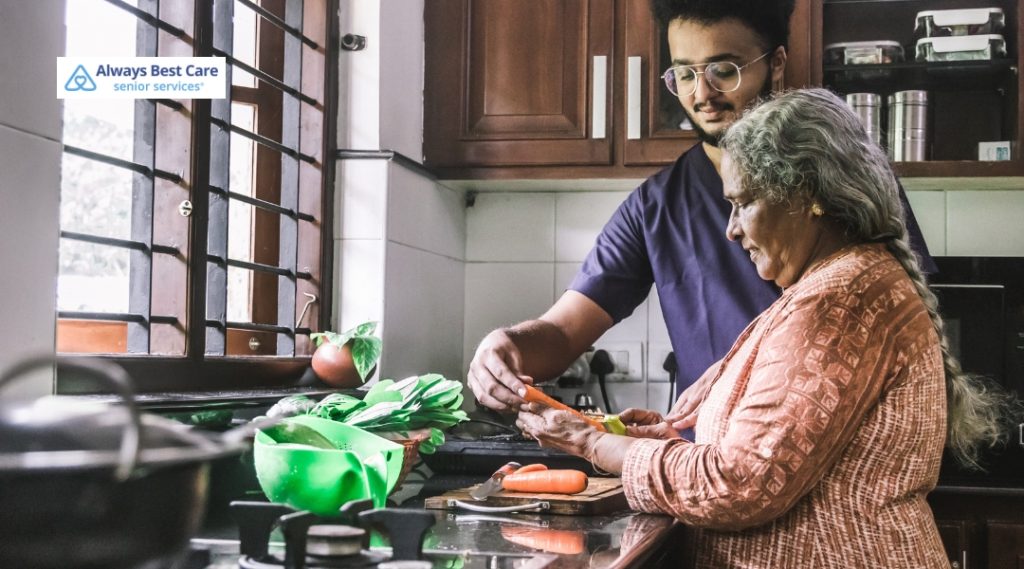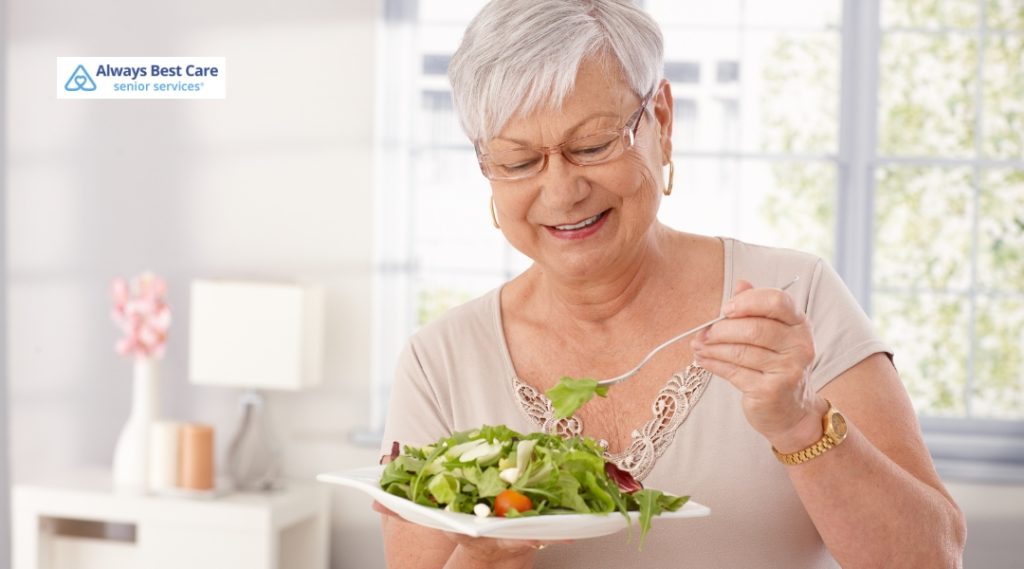Encouraging Healthy Eating: How to Boost Your Senior’s Appetite in San Antonio, TX

As we age, maintaining a healthy appetite can become a challenge.
For many seniors, factors like medication side effects, dental issues, or even loneliness can lead to a decrease in appetite. This can result in weight loss, malnutrition, and decreased energy levels, impacting overall health and independence.
If you’re concerned about your aging loved one’s eating habits in San Antonio, there are several strategies to encourage healthy eating and make meals more enjoyable.
What you will learn:
- Common reasons why seniors may experience a decreased appetite and how these impact their health.
- Simple ways to make meals more appealing and enjoyable to encourage better eating habits.
- Strategies for serving smaller, nutrient-dense meals and making mealtime a social, positive experience.
- How caregivers can support meal planning, preparation, and companionship to improve nutrition and wellness.
Table of Contents
Understanding the Underlying Causes
Before you can fix the problem, it’s crucial to understand why your senior might not be eating well.
Common reasons include:
- Medication side effects: Nausea or dry mouth from medications.
- Dental issues: Ill-fitting dentures or mouth pain.
- Chewing or swallowing difficulties: Making meals a struggle.
- Emotional factors: Depression, isolation, or grief.
- Chronic health conditions: Underlying health issues affecting appetite.
- Loss of taste or smell: Reducing the appeal of food.

Making Meals More Appealing
Seniors are more likely to eat when food looks and smells good. Here are some tips to enhance mealtime:
- Add some color: Include a variety of colorful fruits and vegetables.
- Use attractive plates: Presentation matters.
- Boost flavor: Use herbs and spices instead of salt.
- Create a cozy atmosphere: Soft lighting and pleasant background music can make meals more inviting.
Serving Smaller Meals
Large meals can be overwhelming, especially for those with smaller appetites. Try offering:
- Smaller portions: Three small meals and two to three snacks throughout the day.
- Nutrient-dense snacks: Yogurt, smoothies, cheese, or nuts provide calories and essential nutrients without feeling like a full meal.

Eating Together
Eating is often a social activity. Sharing meals with your loved one, even just once or twice a week, can make a big difference.
If you can’t be there regularly, arrange for other family members, friends, or a caregiver to join them.
Making Eating Easier
If chewing or swallowing is difficult, focus on:
- Soft foods: Scrambled eggs, mashed potatoes, oatmeal, or soups.
- Proper denture fit: Ensure dentures fit well and address any mouth pain.
- Adjusting textures or temperatures: This can increase comfort and interest in meals.

Planning Ahead and Getting Creative
Meal planning can eliminate stress and encourage variety. Involve your loved one in choosing meals and groceries so they feel more engaged.
Preparing meals ahead of time, trying new recipes, and incorporating favorite comfort foods can all help renew their interest in eating.
How We Can Help
At Always Best Care of San Antonio, our experienced caregivers can assist with meal planning, grocery shopping, and preparing tasty, nutritious meals tailored to your loved one’s preferences and dietary needs.
Whether it’s encouraging hydration, adjusting meals for swallowing difficulties, or simply providing companionship during mealtime, we’re here to help make eating a positive experience again.

FAQ
Q: What are common reasons for decreased appetite in seniors?
A: Common reasons include medication side effects, dental issues, emotional factors, chronic health conditions, and loss of taste or smell.
Q: How can I make meals more appealing to seniors?
A: Enhance the visual appeal with colorful foods, use attractive plates, and create a cozy atmosphere with soft lighting and music.
Q: What are some easy-to-eat foods for seniors with chewing difficulties?
A: Soft foods like scrambled eggs, mashed potatoes, oatmeal, or soups are great options.
Q: How can I encourage social eating for my senior loved one?
A: Share meals with them regularly or arrange for others to join them.
Q: What support can caregivers offer for mealtime?
A: Caregivers can assist with meal planning, grocery shopping, and preparing meals tailored to individual needs.
Schedule Your Complimentary Consultation at Always Best Care of San Antonio!
If your aging loved one is struggling with appetite loss or needs support with daily routines, contact Always Best Care of San Antonio at (210) 772-2277 to schedule a care consultation. Our compassionate caregivers are here to support health, wellness, and independence—starting right at the kitchen table.





